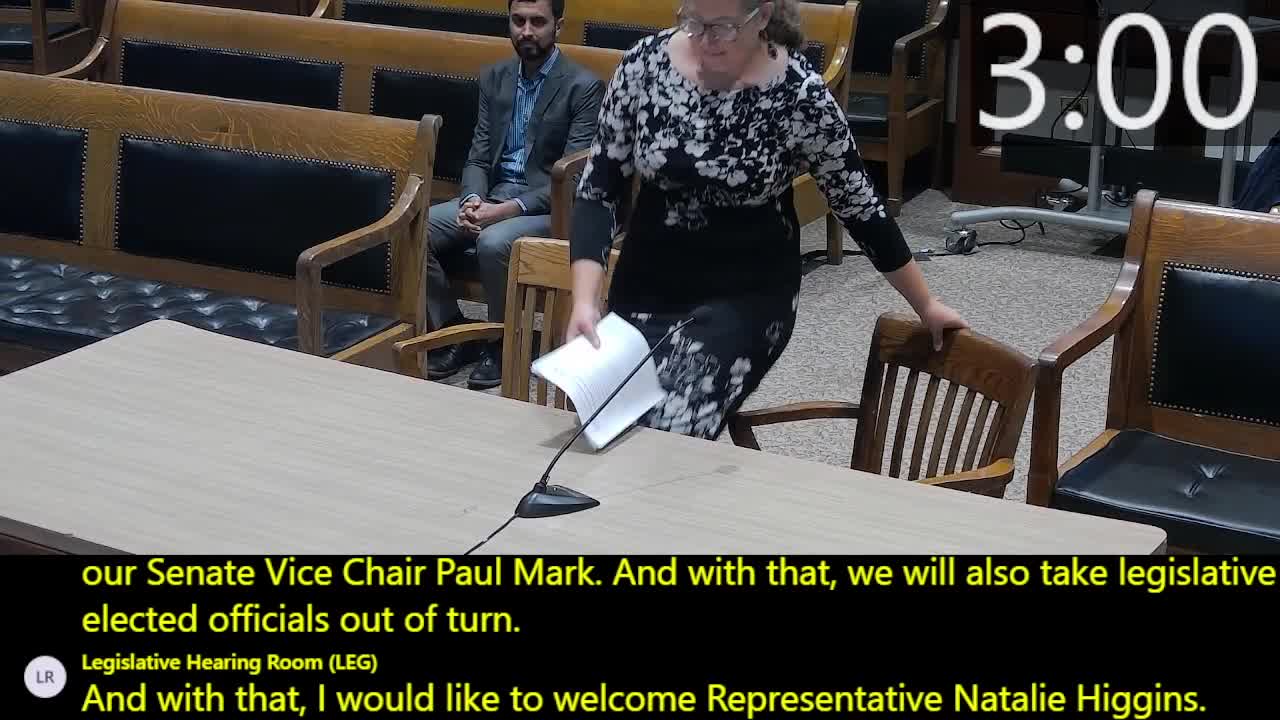Lawmakers, business groups push using Region D casino revenue to fund North Central commuter rail
Get AI-powered insights, summaries, and transcripts
Subscribe
Summary
Legislators and North Central Massachusetts business leaders urged the Joint Committee on Transportation to advance bills (H 3680, S 2363) that would create a Region D gaming license and dedicate a share of gaming revenue to an intercity passenger rail fund aimed at improving service on the Route 2 corridor and other North Central lines.
State Representative Natalie Higgins urged the Joint Committee on Transportation to consider House Bill 3,680 and Senate Bill 2,363, which would create a Region D gaming license and dedicate revenue to an intercity passenger rail fund.
"As the representative from Leominster, my 4 to 5 hour round trip on Route 2 is painful," Representative Natalie Higgins said, describing long commutes and local demand for better commuter rail service.
Higgins said the bills would open a new gaming region in North Central Massachusetts and funnel a share of casino-generated revenue into rail modernization, citing an idea by a constituent as the origin of the proposal. Paul Keating, who described long experience in transportation planning and financing, urged the committee to view the proposal as a funding vehicle that could produce large, long-term capital pools for rail work. Keating described a structure that would bond expected gaming revenues and use matching funds to scale investment in rail projects.
Roy Nascimento, president and CEO of the North Central Massachusetts Chamber of Commerce, told the committee the bills would create a dedicated revenue stream for passenger and commuter rail, with an explicit priority to begin investments on the Route 2 corridor. Nascimento said the proposal is intended to recapture gaming dollars currently spent out of state and to spur regional economic development and job growth.
Testimony at the hearing described preliminary revenue estimates and long-range targets offered by proponents. Keating cited figures from consultant work indicating a single new license could repatriate tens of millions in tax revenue and that, if structured and bonded, the fund could support multibillion-dollar investment streams over decades. Committee members did not take final action during the hearing; the bills were presented for testimony and further consideration.
The committee heard questions from members and invited additional written materials from witnesses; no committee vote or formal referral was recorded at the hearing.
